Giorgio Piola and Sutton Images showcase the latest Formula 1 technical developments on show in the Budapest pitlane at the Hungarian Grand Prix.
Mercedes AMG F1 W09 detail

A nice look at the internal architecture of the works Mercedes power unit and its ancillaries.
Ferrari SF71H front wing detail
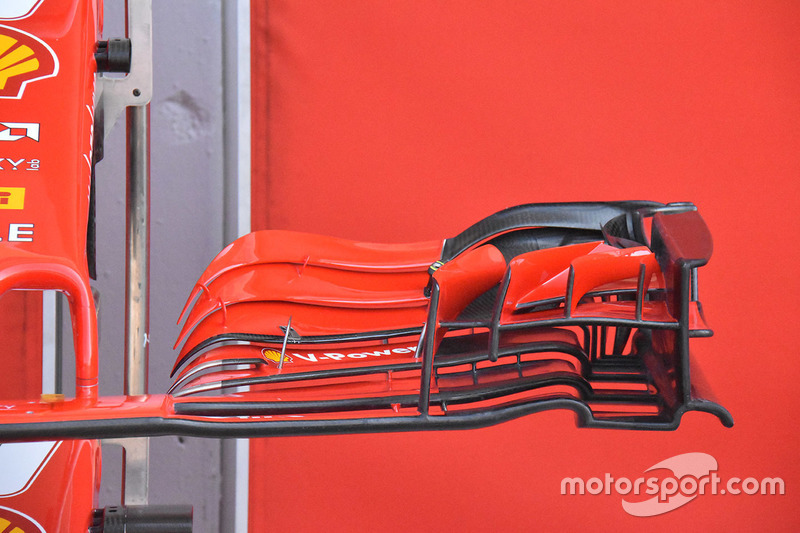
Photo by: Giorgio Piola
Ferrari’s newer specification front wing, with full length main-plane slot, revised outer flap geometry and new endplate canards.
Ferrari SF71H front wing detail

Photo by: Giorgio Piola
Ferrari also has the older specification front wing on hand to trial at the Hungaroring.
Red Bull Racing RB14 rear wing detail
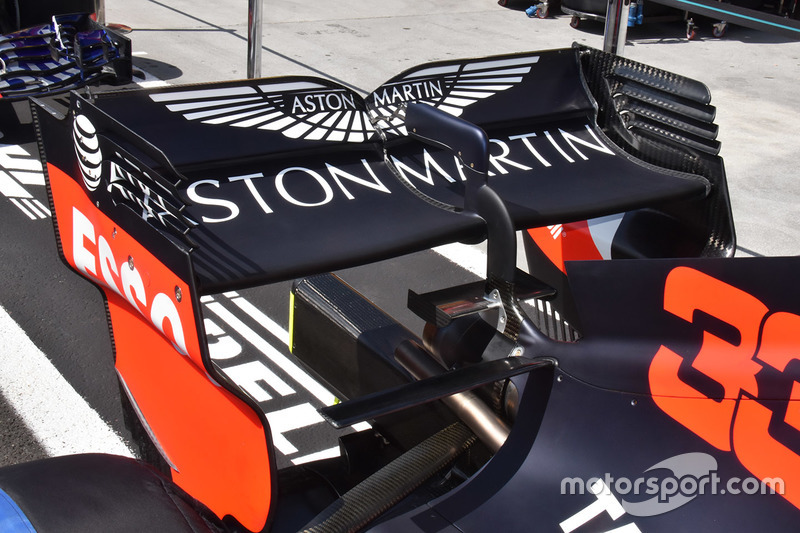
Photo by: Giorgio Piola
Red Bull will use a high-downforce rear wing, monkey seat and T-wing.
Force India VJM11 rear wing detail
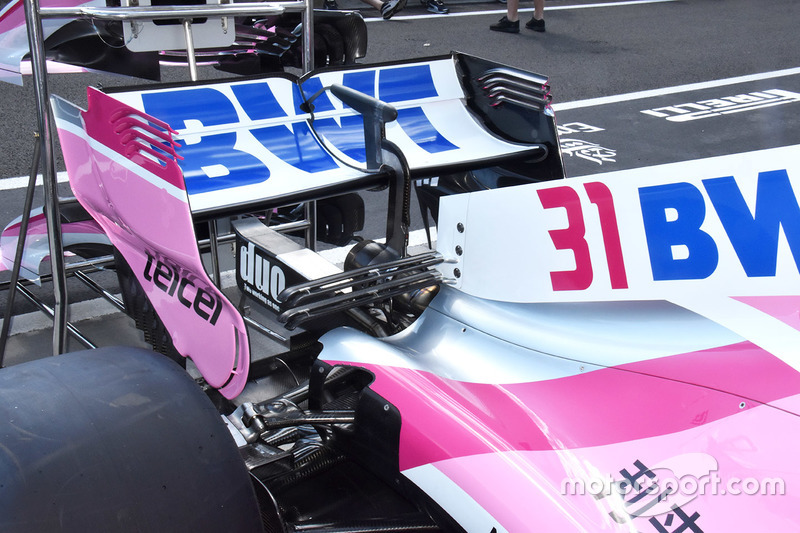
Photo by: Giorgio Piola
Force India looks set to use its ‘double double’ T-wing solution again, having last used it in Monaco.
Mercedes-AMG F1 W09 front wing detail
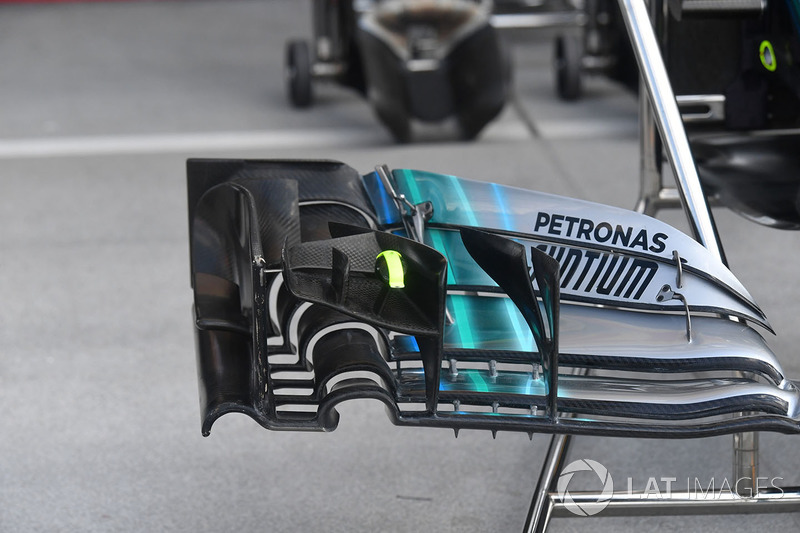
Photo by: Mark Sutton / Sutton Images
A close-up view of Mercedes front wing assembly.
Mercedes-AMG F1 W09 bodywork
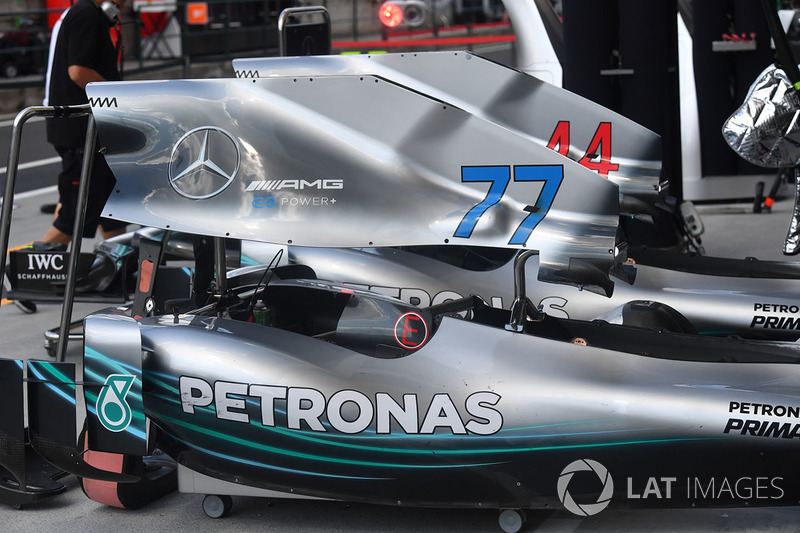
Photo by: Mark Sutton / Sutton Images
Mercedes look set to use the chimney-style engine cover outlet again this weekend.
Red Bull Racing RB14 in the garage
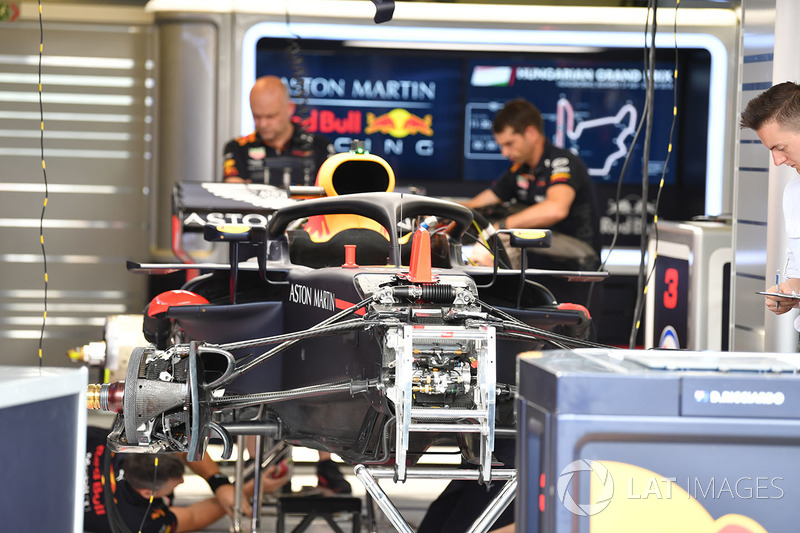
Photo by: Mark Sutton / Sutton Images
One of the RB14s being setup ahead of the GP, note the use of the belleville spring heave damper.
Force India VJM11 bargeboard detail
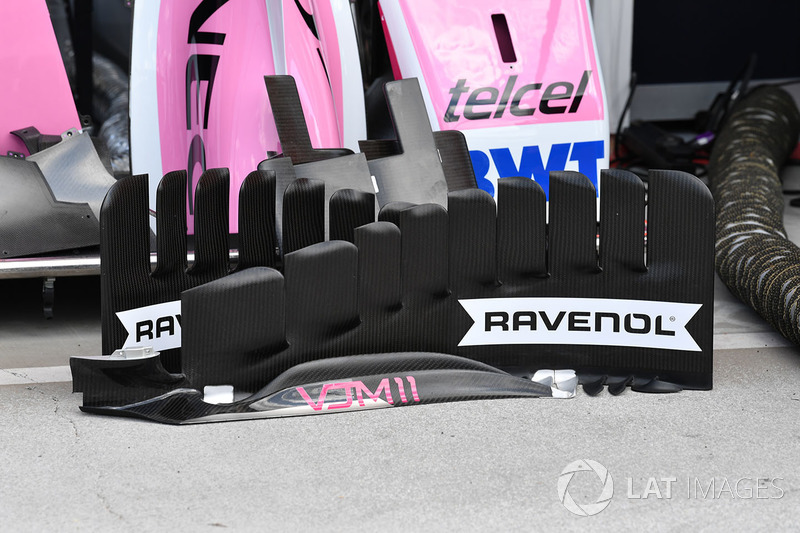
Photo by: Mark Sutton / Sutton Images
Detached from the car, Force India’s bargeboard detail is more exposed.
Williams FW41 nose and front wings
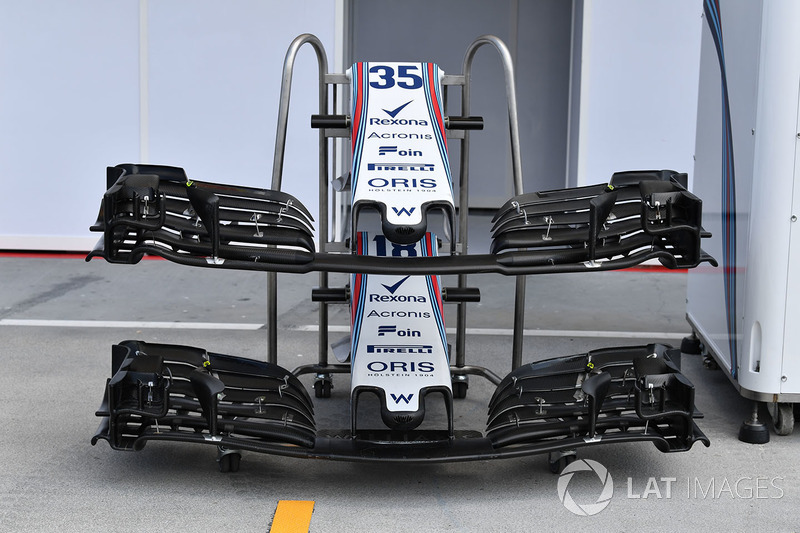
Photo by: Mark Sutton / Sutton Images
The two front wing specifications available to Williams, with the old design top and the new one on the bottom.
McLaren MCL33 nose and front wing
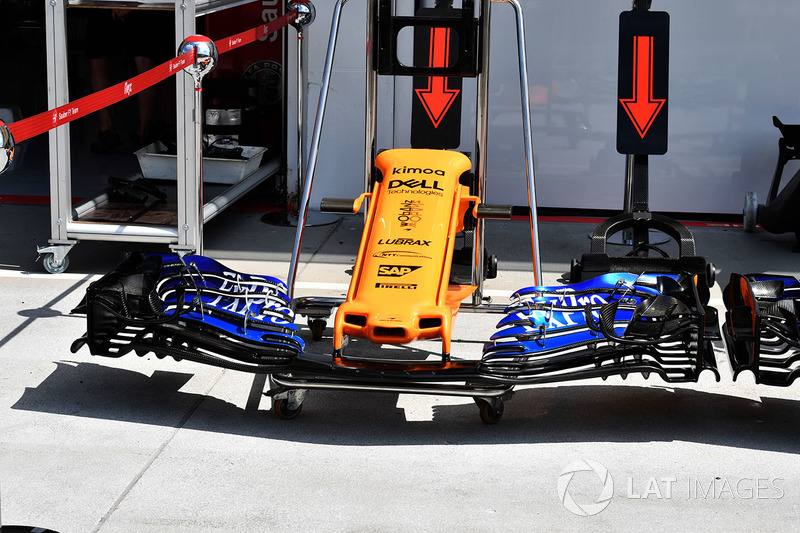
Photo by: Sutton Images
The newest specification front wing, first introduced by McLaren in Austria, which features a revised main-plane design.
Renault Sport F1 Team R.S. 18 nose and front wing
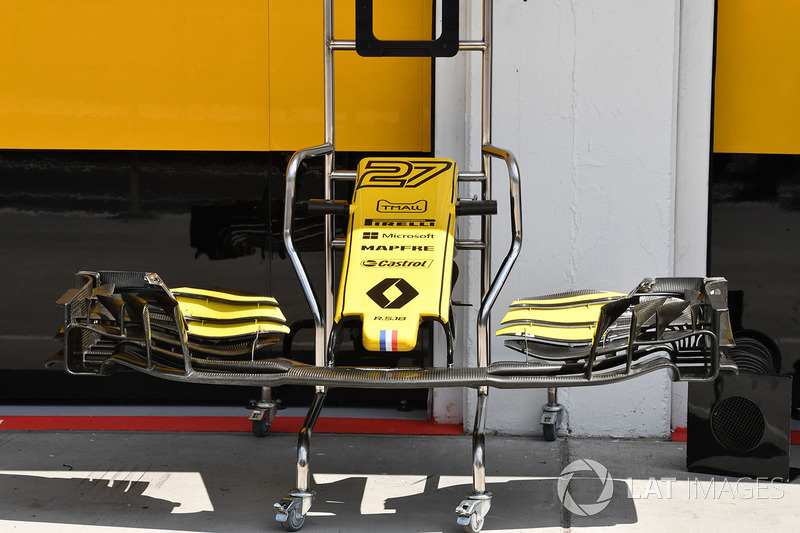
Photo by: Mark Sutton / Sutton Images
Having introduced a new front wing concept at the last GP here’s a look at Renault’s older specification wing.
Scuderia Toro Rosso STR13 nose and front wings
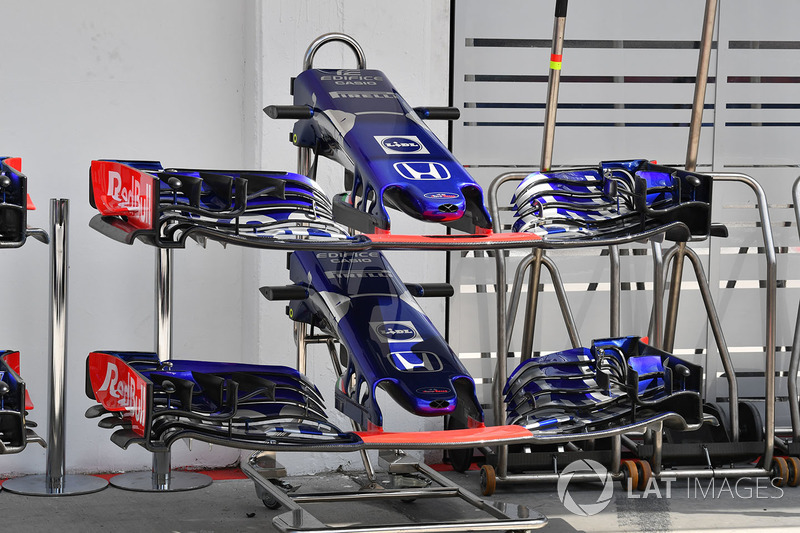
Photo by: Mark Sutton / Sutton Images
Toro Rosso prepared with two different specification front wings, the lower of the two is newest spec and sees the outboard footplate split into three elements.
Red Bull Racing RB14 rear wing detail

Photo by: Mark Sutton / Sutton Images
A close up of the monkey seat that Red Bull will run in order to manipulate the localised flow stream around the exhaust and improve rear wing performance.
Red Bull Racing RB14 rear wing detail

Photo by: Mark Sutton / Sutton Images
Red Bull will test the monkey seat in combination with a T-Wing.
Red Bull Racing RB14 barge board detail

Photo by: Mark Sutton / Sutton Images
A close up of the RB14’s ever-more complex bargeboard and sidepod region.
Mercedes-AMG F1 W09 rear detail
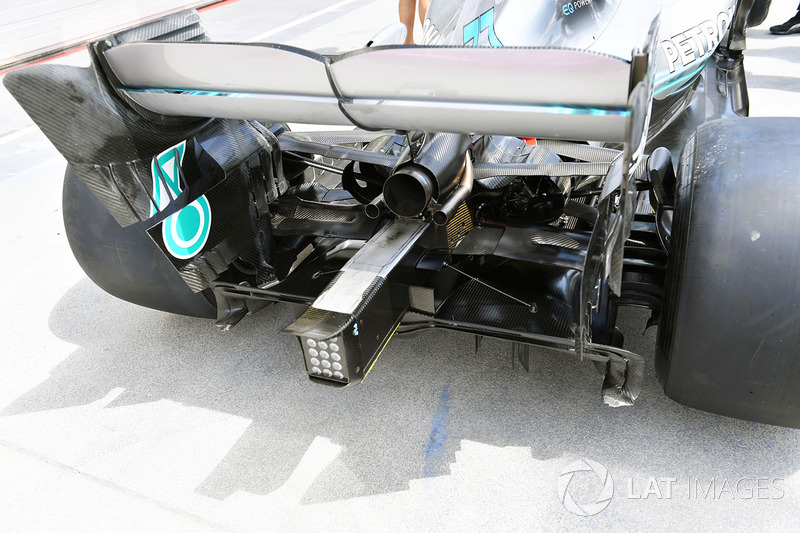
Photo by: Mark Sutton / Sutton Images
A great close up of the Mercedes W09’s rear end, showing off all of the aerodynamic complexity.
Mercedes-AMG F1 W09 front brake duct detail

Photo by: Mark Sutton / Sutton Images
A close up of the W09’s front brake duct, enabled by the lack of front wing which affords us the opportunity of seeing all of the winglets attached to the main fence and suspension.
Renault Sport F1 Team R.S. 18 rear wing
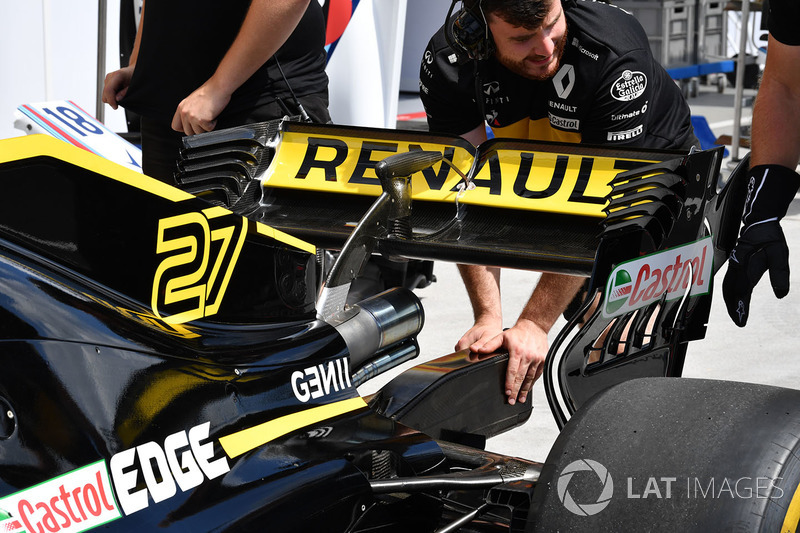
Photo by: Mark Sutton / Sutton Images
Renault’s RS18 being pushed to scrutineering note the exhaust configuration, with the wastegates underneath in order to lift the exhaust closer to the underside of the rear wing.
Renault Sport F1 Team R.S. 18 barge board detail
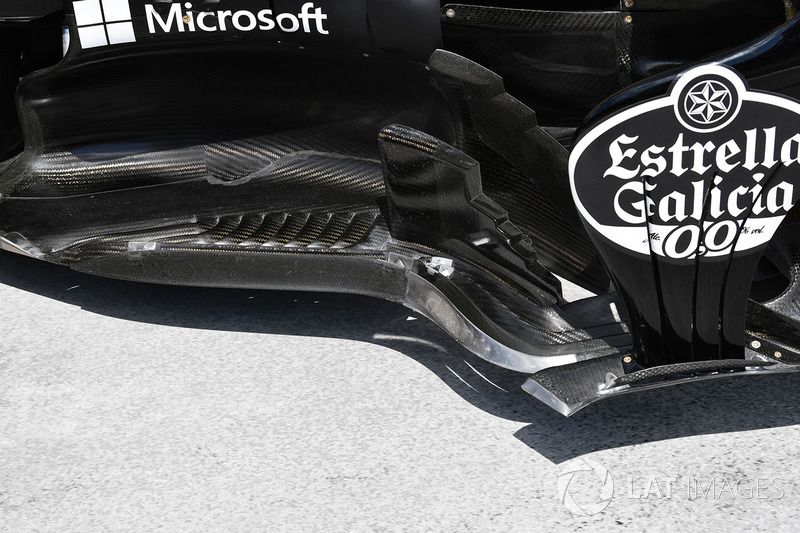
Photo by: Mark Sutton / Sutton Images
A close up of the extremely complex and multi-faceted bargeboard footplates on the Renault RS18.
Force India VJM11 rear wing detail

Photo by: Mark Sutton / Sutton Images
A close up of the open-ended style endplate louvres, first championed by Toro Rosso and subsequently run by the majority of the grid – shown here on the Force India.
Force India VJM11 rear floor detail
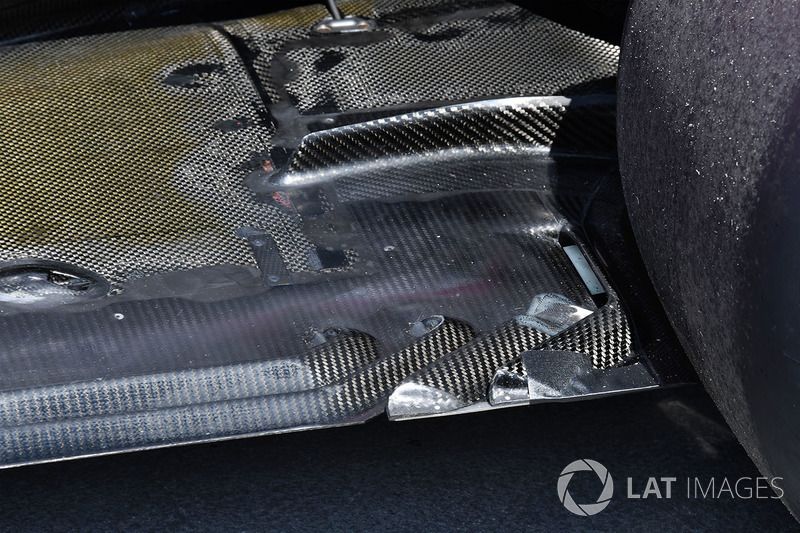
Photo by: Mark Sutton / Sutton Images
A close up of the slots and fully enclosed holes in the floor ahead of the rear tyre on the VJM11.
Ferrari SF71H rear wing detail

Photo by: Giorgio Piola
Sebastian Vettel’s Ferrari has been outfitted with sidepod bodywork with a valley in the central section, as was used in Silverstone last.
Ferrari SF71H rear wing detail

Photo by: Giorgio Piola
Meanwhile, Kimi Raikkonen has the standard bodywork, at least for the beginning of FP1.
Scuderia Toro Rosso STR13 rear wing detail
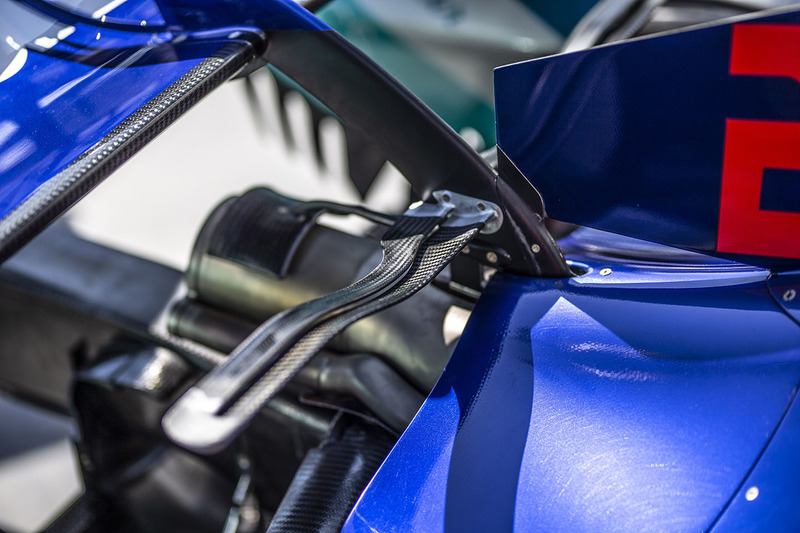
Photo by: Mark Sutton
The wavy and slotted T-Wing assembly that Toro Rosso will use once more.
Scuderia Toro Rosso STR13 barge boards

Photo by: Manuel Goria / Sutton Images
A close up of the bargeboard region on the STR13 shows of the various slots and serrations used in order to improve each given surface.
McLaren MCL33 rear wing detail

Photo by: Giorgio Piola
McLaren’s high-downforce rear wing setup and engine cover configuration – note the elongated and perforated flaps on the trailing edge of the cooling outlet.
Sauber C37 rear detail
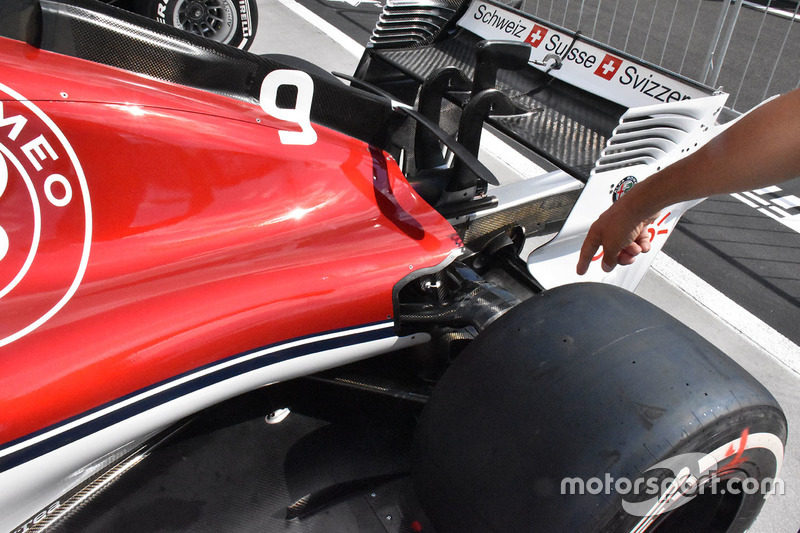
Photo by: Giorgio Piola
A shot of the Sauber C37’s rear end, note the droopy Ferrari-esque T-Wing introduced by the team in Germany.
Mercedes-AMG F1 W09 chassis and front suspension detail

Photo by: Mark Sutton / Sutton Images
A close up of the Mercedes W09 without the nose or front wing gives us a clear view of the under chassis bat-wing, and the vertical elements placed on the leading edge of the serrated bargeboard footplates.
Red Bull Racing RB14 rear floor detail
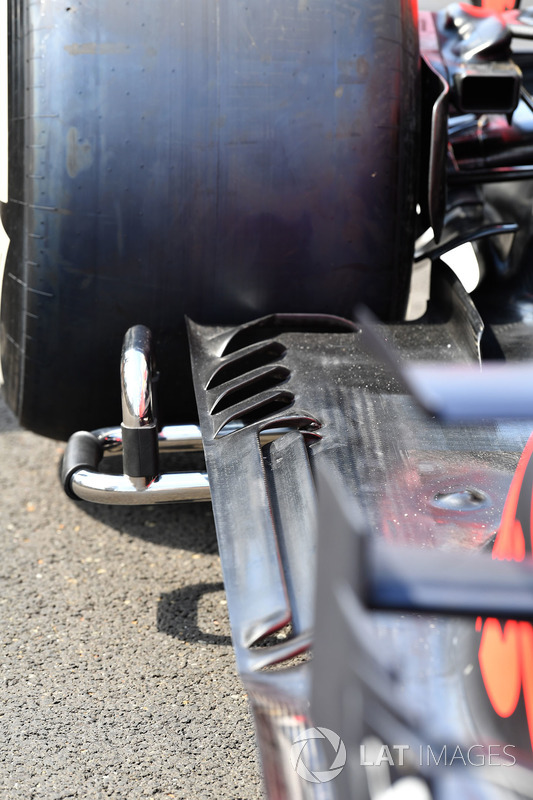
Photo by: Mark Sutton / Sutton Images
A look down the RB14’s flank shows that ahead of the rear tyre are now fully enclosed holes, rather than the slots that have been required for legality in the years preceding the new regulations.
Mercedes-AMG F1 W09 nose detail
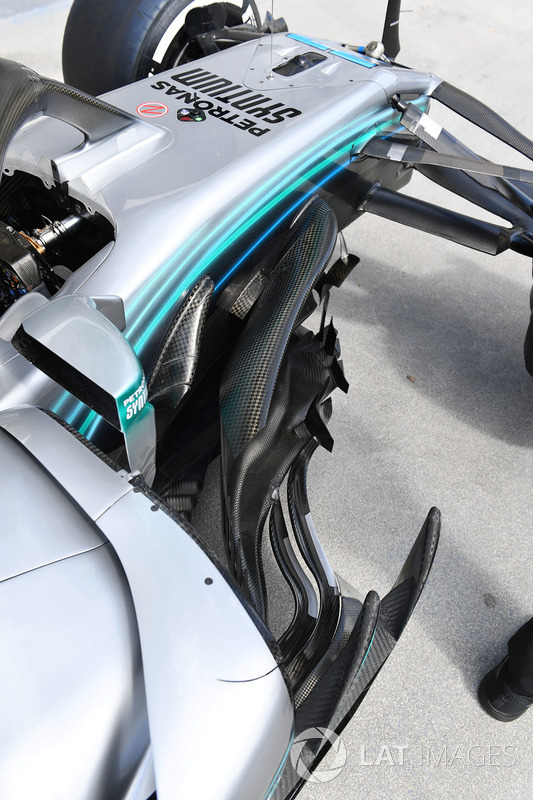
Photo by: Mark Sutton / Sutton Images
An over-the-shoulder-type photo of the complex area ahead of the sidepod on the Mercedes W09 – intense detailing.
Mercedes-AMG F1 W09 engine cover detail
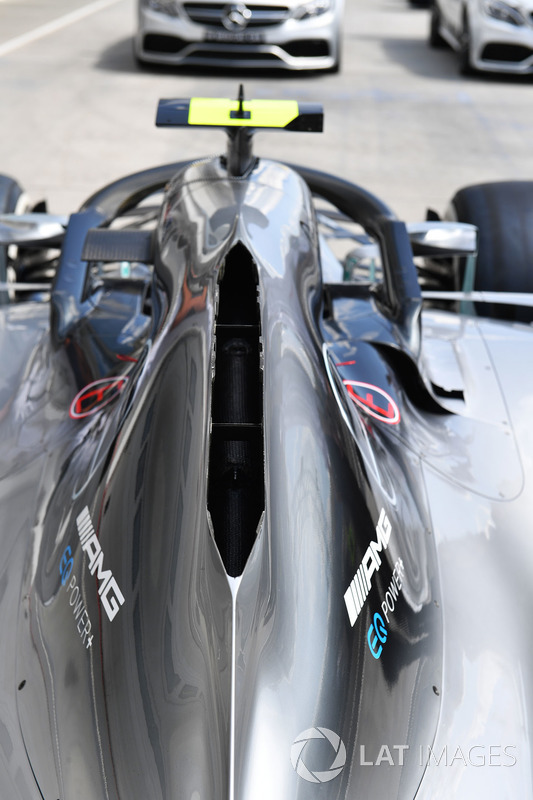
Photo by: Mark Sutton / Sutton Images
A look inside the chimney-style engine cover outlet used by Mercedes to evacuate hot air created by the power unit.
Source: Read Full Article
